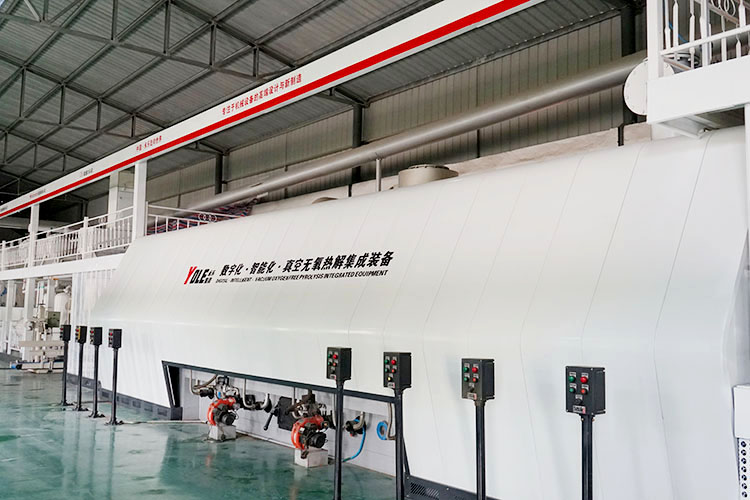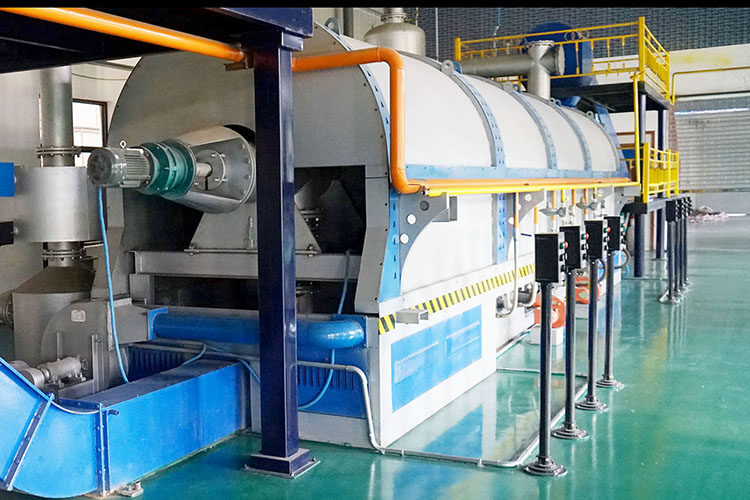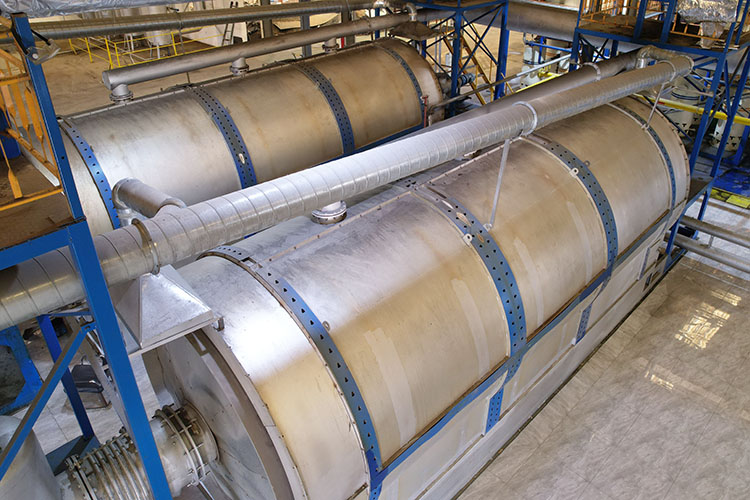Plastic refining equipment is an important environmental protection equipment in modern industry, which converts waste plastics into useful fuels and chemical raw materials through physical and chemical methods. Its working principle is mainly based on thermal cracking technology, that is, decomposing plastic materials into smaller molecules under high temperature, oxygen-free or oxygen-deficient environment. This process involves multiple steps, including feeding, heating cracking, gas condensation, oil and gas separation, and waste residue treatment.

The work of plastic refining equipment starts with feeding. Waste plastics are fed into the feeding system after preliminary sorting and cleaning. In order to improve the cracking efficiency and output quality, waste plastics need to be crushed or cut to ensure uniform material size, which helps the subsequent anaerobic pyrolysis process. The feeding process is not only a mechanical operation, but also the beginning of the entire system, laying the foundation for the smooth progress of subsequent links.
In the anaerobic pyrolysis stage, waste plastics are fed into the pyrolysis reactor. The reactor is made of high temperature resistant and corrosion-resistant materials to ensure stability and safety in high temperature environments. The temperature is raised to 400 to 700 degrees Celsius by electric heating or gas heating devices. In such a high temperature environment, the plastic molecular chain breaks and generates small molecular hydrocarbon gases. Controlling the temperature and heating rate inside the cracking reactor is the key to ensuring the success of the thermal cracking process. Too low a temperature will result in incomplete cracking and low quality of the output oil; too high a temperature will produce too many gas products, affecting the output of oil products.
The small molecular hydrocarbon gas produced by pyrolysis enters the condensation system through a pipeline. The condensation system consists of a series of condensers and cooling devices, and the cooling medium can be water or air. The gas is cooled to a liquid state in the condenser to form an oil product. The design and configuration of the condensation system directly affects the collection efficiency and quality of the oil products. Therefore, during the condensation process, the flow rate and temperature of the cooling medium need to be strictly controlled to ensure maximum recovery of the oil products.

During the condensation process, some lighter gases cannot be completely condensed into a liquid state, and these gases are called non-condensable gases. In order to improve resource utilization, non-condensable gases are collected and recycled through a gas separation system for use as fuel or further processing. Common treatment methods include combustion for heating the cracking reactor, or removal of harmful components through an adsorption device to ensure that exhaust gas emissions meet environmental standards. This not only achieves the reuse of resources, but also greatly reduces environmental pollution.
A certain amount of solid waste residue is inevitably produced during the cracking process, mainly including indestructible plastic residues and catalyst residues. Waste residues need to be professionally treated, and common methods include physical separation, incineration and landfill. Through reasonable waste residue treatment, environmental pollution can be reduced and waste resource utilization can be realized.
Plastic refining equipment has significant environmental protection and economic benefits. First, it can effectively treat a large amount of waste plastics and reduce the pollution of plastics to the environment. By converting waste plastics into usable fuels and chemical raw materials, the recycling of resources is realized. Secondly, the plastic refining process can recycle a large amount of heat and chemical energy, reduce dependence on traditional fossil fuels, and has a significant energy-saving effect. At the same time, the produced fuel oil and gas can replace part of traditional energy and further reduce energy consumption. In addition, plastic refining equipment can produce high-value-added fuel oil, gas and chemical raw materials, which have high economic value in the market. Through reasonable operation and management, plastic refining equipment can bring considerable economic benefits to enterprises. Finally, the application of plastic refining technology has promoted the development and upgrading of related industries and promoted the technological progress and market expansion of the environmental protection industry. The research, development and promotion of plastic refining equipment not only improves the efficiency of waste plastic treatment, but also provides a new growth point for the environmental protection industry.

In summary, as an important part of modern environmental protection technology, plastic refining equipment has significant environmental protection and economic benefits. Through advanced thermal cracking technology, it can efficiently convert waste plastics into fuels and chemical raw materials, realize waste resource utilization, and reduce environmental pollution. With the continuous advancement of technology and the promotion of its application, plastic refining equipment will play a greater role in resource recycling and environmental protection, and make important contributions to sustainable development.
Yongle Environmental Protection is mainly engaged in the research and development, production and sales of complete sets of technical equipment for organic solid waste disposal and comprehensive utilization. Production and manufacturing, domestic waste treatment equipment, tire pyrolysis equipment, medical waste disposal equipment, hazardous waste disposal equipment, and achieve efficient and comprehensive utilization of resources through independently developed low-temperature anaerobic pyrolysis equipment technology solutions.
Tags:Working Principle of Plastic Refining Equipment,Plastic Refining Equipment,Yongle Group
 Latest news
Latest news


























